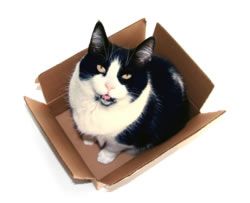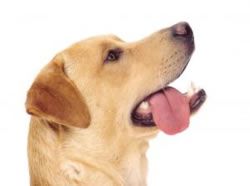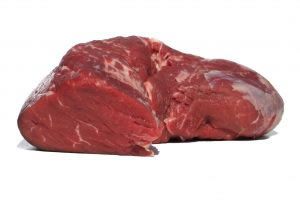Dog and Cat Food Facts

Protein
Protein sources in pet food include chicken meal, lamb meal, turkey meal, fish meal, chicken by-products, meat by-products, chicken, duck, beef, turkey, pork, corn, and soy. Pets with allergies to some protein sources may tolerate salmon, duck, lamb and lamb meal without an allergic reaction.
The quality of protein sources is variable and some are more digestible than others. Ingredients like chicken meal, fish meal, and lamb meal are highly digestible and may provide your pet with a better quality protein than soy protein and ground corn or cereal. Some pets do not tolerate foods containing soy or cereal.

Carbohydrates
Brown rice, brewers rice, rice, wheat, corn and oatmeal are sources of carbohydrates. These ingredients also contain some protein. Some pets do not tolerate wheat or corn in their diet. Ear infections, dry itchy skin and a poor coat may indicate a food allergy.
There are a number of good quality foods available that are developed for pets with an allergy to wheat or corn. (Discuss these alternatives with our team or your veterinarian.)
Fats & Essential Fatty Acids
Animal fat, poultry fat and plant oils are sources of essential fatty acids. Flaxseed oil is a good source of fatty acids. Most premium foods provide adequate amount of dietary fats. Some inexpensive foods may not provide optimum levels of essential fatty acids.
Preservatives
Preservatives like Ethoxyquin may be harmful to your pet. Pet food can be safely preserved with natural ingredients like mixed tocopherols and vitamin C.
Supplements
Vitamin and mineral supplements may be harmful to your pet if you feed a complete dog food. Most premium pet foods already contain the proper balance of vitamins and minerals. One can have too much of a good thing, especially with the fat-soluble vitamins. Calcium supplements can also be harmful to puppies and kittens.
Excess dietary calcium can increase the risk of some orthopedic disorders such as hip dysplasia, OCD (osteochondritis dessicans) and panosteitis, especially in large breed puppies.
A small amount of vitamin C can be safely added to pet food.
Pet supplements that contain concentrated omega 3 and omega 6 fatty acids help to maintain a healthy coat and skin. High fat supplements are also high in calories and should be used sparingly. Most premium pet foods contain adequate amounts of essential fatty acids. Plain low fat yogurt contains beneficial bacteria.
The organisms in yogurt can be especially helpful when your pet is on antibiotics since these medications can alter the "good' bacteria in the intestines. Most pets will enjoy the addition of a tablespoons of yogurt to their food.
Supplements containing glucosamine and chondroitin may help maintain healthy connective tissue and joints. Most premium pet foods formulated for older animals contain small amounts of these substances, but the amount is probably not enough to be therapeutic.
Age and active appropriate Formulas

The nutritional needs of pets change with age and activity level. The ideal formula meets the energy needs of your pet and provide the proper balance between protein, fats, vitamins and minerals.
Maintaining a proper weight is very important to your pet's health and well-being.
High protein (28-32%), high fat (18-22%), high energy dog foods are appropriate for very active, hardworking dogs. However, these high calorie foods may contribute to excessive weight gain. Overweight puppies are much more likely to develop joint disorders. Determining the proper amount of these foods for growing puppies can be difficult.
Low protein (20%-22%), low fat (10%-12%) maintenance dog foods are appropriate for less active older dogs and overweight adult dogs, but not for puppies. These foods may not provide puppies with adequate amounts of protein.
The same applies for cats and kittens. Kittens are very active and will need a higher protein and calorie diet than adult and senior cats.
BARF- bones and raw food
Some dog fanciers are very enthusiastic about BARF diet. The goal is to provide your dog with the diet that Mother Nature intended. Do your homework if you are interested in the raw food diet for dogs. A proper balance of vitamins, minerals, protein, fats, and carbohydrates is important.
There are several companies that sell a frozen raw dog food product that contain balanced amounts of vitamins, minerals, and other nutrients. Many dog owners are very pleased with this diet and feel it is worth the extra time and effort. Some veterinarian's do not recommend feeding dogs a raw meat diet.

